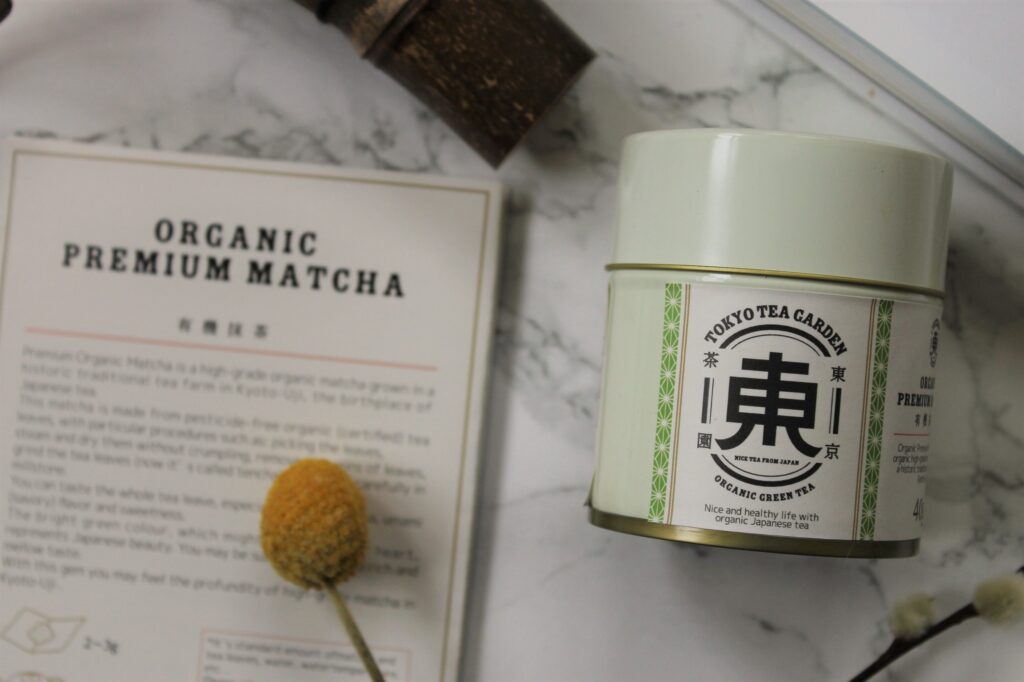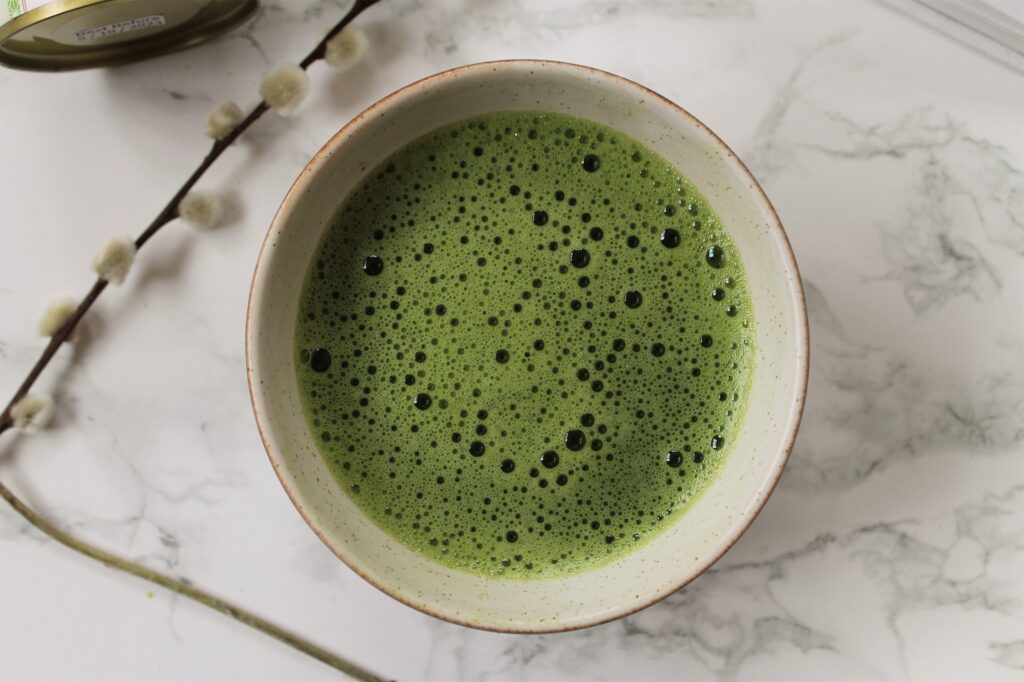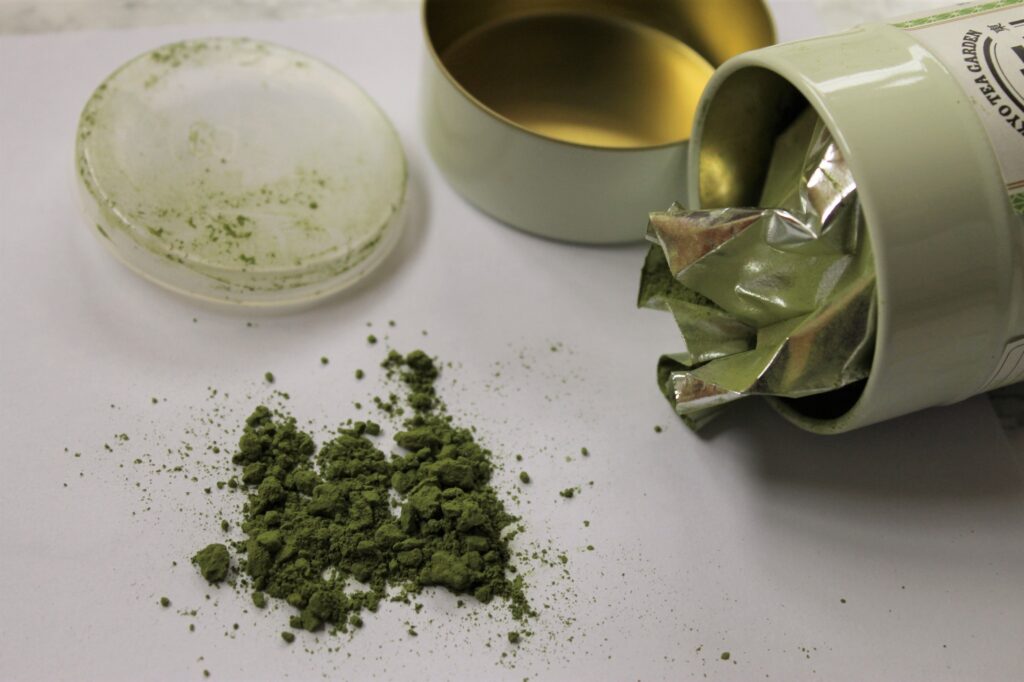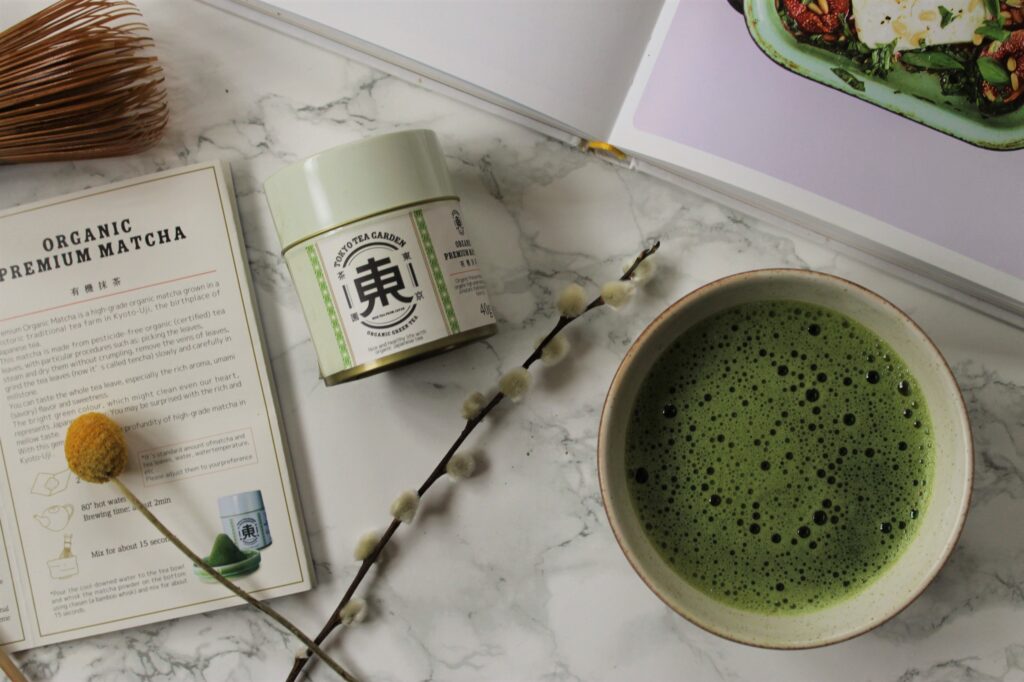Today, it’s matcha Monday and Tokyo Tea Garden is on the agenda. I have a small tin of their Organic Premium Matcha from the Uji region of Kyoto (Japan) to get stuck into. If you are new to matcha, you can find several helpful articles here at Immortal Wordsmith. Use my Tea Review Index in the menu to navigate the blog.
You can also take a look at my Best Matcha Bowl list to find the perfect equipment for whisking up a fresh and umami cup of ceremonial grade matcha.
But first, let’s dig in. This review covers the quality, flavour and preparation of Tokyo Tea Garden Matcha and includes some extra info about the company too.
Tokyo Tea Garden Matcha at a Glance
- Origins: Uji in the Kyoto Prefecture, Japan
- Flavour: Intensely umami with pleasant grassy notes and distinct astringency
Although not the sweetest matcha I have tried, it is certainly flavourful and deep. This matcha has a rich flavour and long-lasting foam that’s easy to whisk up.

Full Review – USDA Organic Uji Matcha
- Type: Matcha
- Tea: Tencha green tea
- Origin: Uji, the Kyoto Prefecture of Japan
- Flavour Notes: Umami, astringent, grass, little sweetness
- Aroma: Sweet, grassy, umami, mellow, rich
- Milk or Lemon: Neither
- Where to Buy: Tokyo Tea Garden or Etsy
Tokyo Tea Garden sell this matcha in a foil packet, within a double-sealed metal tin. The inner plastic lid does a fantastic job of keeping the matcha sealed air-tight, so when you open it up you are hit with a lush aroma. It’s quite umami and grassy, with a good sweetness peaking through too. It’s very welcoming and moderately mellow.
Once whisked (I used my bamboo chasen rather than the electric whisk), the aroma develops in richness. The best way I can describe it is as if a pinch of salt has been added. That savoury umami note develops and intensifies with a good, rich and flavoursome note.
As for the flavour, it is quite intense! My regular readers know that I have a sweet tooth, so matcha powders that have a natural sweetness appeal to me most. While Tokyo Tea Garden matcha has a little sweetness, it is dominated by that umami note and has prominent grassy notes and lingering astringency. It’s quite pleasant and vibrant, but I think I will save this matcha for making lattes in the future.
With the addition of milk and perhaps a teaspoon of honey, I could happily drink this matcha daily.

How to Make Matcha Tea
The best instructions I ever received for making matcha were from Naoki. Start by pouring some hot water in your matcha bowl and standing the whisk in it for a few minutes. Warming up the bowl and the whisk aids frothing and keeps the tea hotter for longer.
Drain this water out, then add a scoop of matcha and a splash of water. Using a bamboo whisk, vigorously whisk the matcha and water into a smooth paste. Add more water to your desired thickness and whisk in a zigzag motion. The key is to start at the base of the matcha bowl, then slowly move the whisk closer to the surface to create a nice micro-foam.
As with all green teas, use water at 80°C or lower to prevent scalding the matcha and ruining the subtly sweet flavour. Tokyo Tea Garden recommend using 2g to 3g of powder, but you can judge by eye using a bamboo or measuring scoop.
Why Tokyo Tea Garden?
Tokyo Tea Garden approached me on Instagram to promote their products with a couple of photos. I gladly accepted, eager to try some delicious green tea from Japan. This review, however, was not included in that agreement – it’s unpaid for and unbiased. The links on this page are not affiliate links either.
I love the quality of this brand. The fact that the tea is grown in Uji, one of the best regions of Japan for growing tea, is already an indicator that this matcha is going to be good. The additional USDA Organic certification is just the cherry on top.

Nowhere in the official description or packaging does this matcha have a grade – I cannot find a confirmation of ceremonial or culinary anywhere. But does it really matter? As Matcha Kari points out, these terms seem to be a Western invention. In Japan, you would simply buy the highest quality matcha you could for drinking and leave the lower qualities for culinary uses.
As this tea is labelled ‘premium’ and I have confirmed first-hand that it is naturally vibrant and flavoursome to drink, I suspect it would be classed as ceremonial regardless.
Summary
Tokyo Tea Garden Matcha is high-quality, flavoursome and vibrant. If you enjoy the umami notes of matcha, or you are looking for a strong powder that can shine through when used to make a matcha latte, I highly recommend it.
You can buy this tea directly from Tokyo Tea Garden – I am unaware of any other place that sells it. If it is unavailable, come back here and check out the other matcha reviews at Immortal Wordsmith!

Tea-Ware Recommendation
If you prefer to turn your matcha into a matcha latte (no judgment here) then you will love my fun Matcha Latte Glass Cups in the Immortal Wordsmith store. With free delivery to the UK, they are double walled and ideal for keeping your matcha hot while you find the perfect angle for an Instagram photo.
